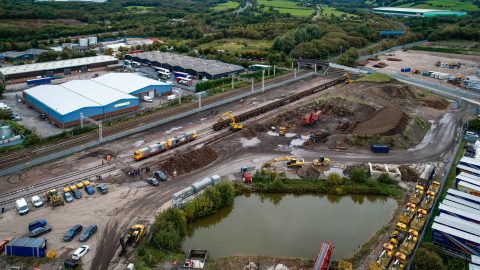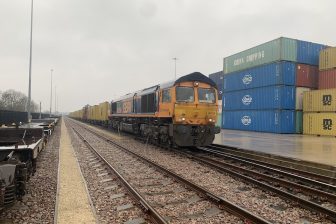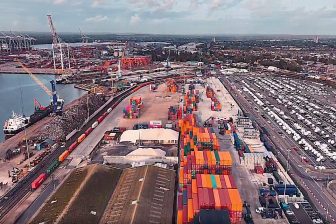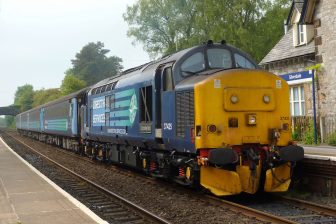
Making short haul freight pay dividends
Moving bulk tonnage over long distances has become the mainstay of modern rail freight, but one company has found a profitable niche in more traditional shorter trips. That is good for congestion, the environment and the bottom line.
David Fletcher has just seen the first rail deliveries into Land Recovery’s new rail freight terminal at Longport, Stoke-on-Trent in the English Midlands. He is Director of Rail at the Cappagh Group of Companies, a UK operator better known for its road-based logistics for the construction industry. “We are a vertically integrated Group of Companies”, he says. “We work across the Group to deliver solutions that most economically meet our customer needs. Right now, rail is back in the frame, and makes much more sense for a much wider portfolio of customers.”
Off the road
Midlands-based DCRail became part of the London based Group in 2017, and is providing the trains to move bulk construction materials into the Longport site that has not seen active service for well over a decade. “We are moving spoil created from improvements to the national rail network into a recycling facility created by our customer Land Recovery,” he said, as the bright yellow mechanical shovels make short work creating a stockpile of the sort of materials that almost everyone would be happy to see kept off the roads.
That is exactly what this project is all about. “This project was only possible because the site was still connected to the network despite not seeing trains for many years. It just shows the value in protecting freight land for future traffic that was not envisaged when previous uses ceased”, adds David.
Industrial base
While Stoke-on-Trent is famous for pottery, the region is also an industrial base, with a legacy of railway infrastructure built to serve the smoke stacks of the city. These sidings sit on the main line, with direct access north to the pivotal junction of Crewe, and south to booming markets of South East England. Yet, that connectivity is for the future says David. “This contract is moving aggregates only a matter of 14 miles (22km), but this is a congested area, where there is a high urban population. Given our experience in similar situations, we were able to provide a solid business case for rail.”
The company has projects in hand nearer to their London base too. “Environmental pressures are even more acute there,” said David. “There is also the on-going issue of a road driver shortage. By using rail for as much of the heavy lift as possible, we can limit road transport to the last mile, meaning we can move more product for our customers.”
Short for now
The Stoke-on-Trent project did require coordination and cooperation from a whole panel of partners but, as David noted, there is an increasing willingness to deliver rail-based solutions among the wider business community. “Whether it is recycled track ballast, aggregates or other bulk loads, we know that rail ticks all the boxes for environmental sustainability”, he says. “What we have to do is make sure that stacks up economically as well. There are many more places, where potential users are taking a fresh look at rail, and asking the right questions about reactivating facilities for new purposes.”
Given that the long term layoff at Longport proved no obstacle to bringing the facility back into active service, there are encouraging signs that freight spur closures, such as those announced by SBB Cargo in Switzerland at the beginning of October, need not necessarily be permanent. It is not just Stoke-on-Trent that has a freight legacy lying dormant. Short trips for now, but Cappagh is into rail for the long haul.





Great to see this facility also seeing freight trains on the North Staffs line through Uttoxeter. Perhaps this greatly underused east west rail link (running largely parallel with the A50 which is having £m’s spent on it) will finally get some investment to enable it to reach its full potential.